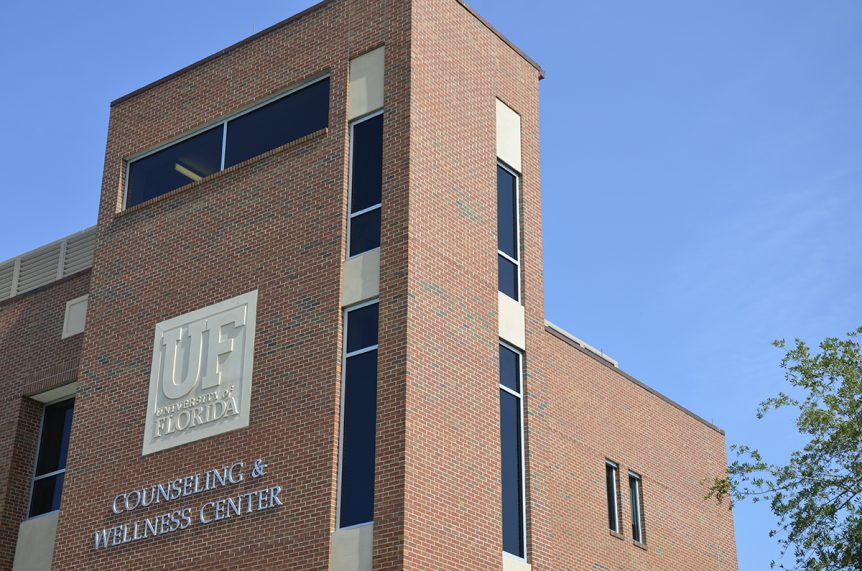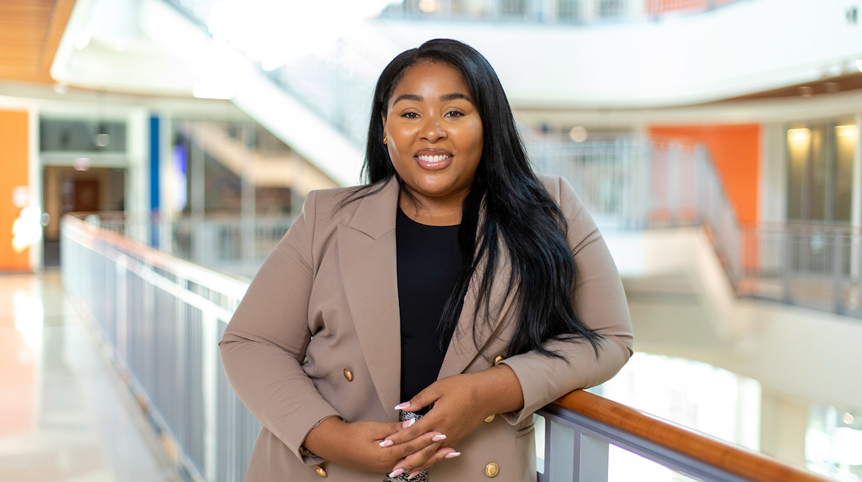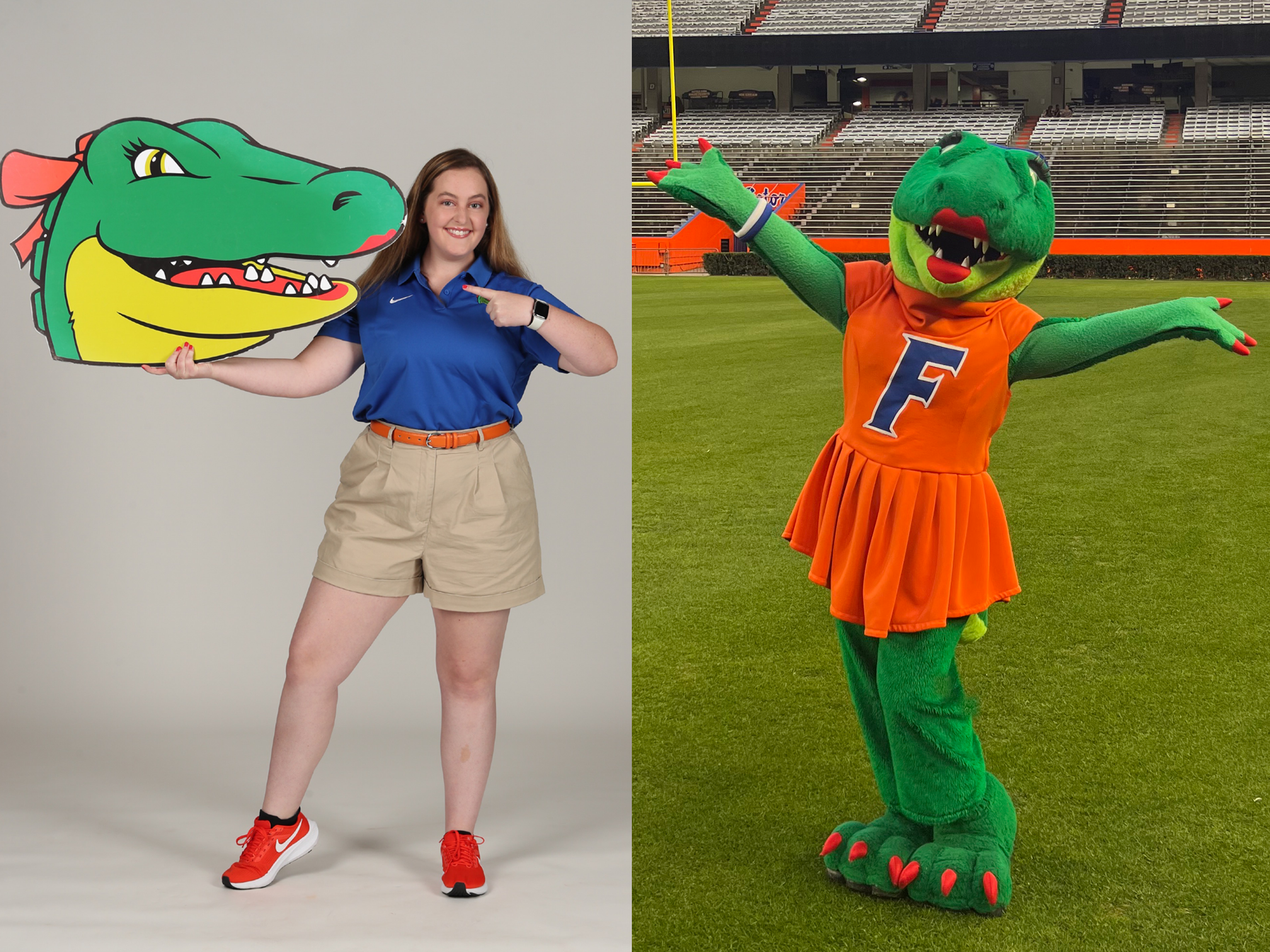Dr. Rosa West said she sometimes asks students to think of their mental health like a car.
“If your engine goes out, you take it into a mechanic and the mechanic works on it. Like counseling, right? But you don’t leave your car there indefinitely,” said West, outreach coordinator at the University of Florida Counseling and Wellness Center. “When it’s fixed you take it back out and you rotate the tires, get an oil change – all of these maintenance things to prevent your car from having to go back to the mechanic.”
She said staff at the Counseling and Wellness Center aim to help students consistently maintain their mental health. Many students don’t reach out until they need acute care, she added.
“Most students I’ve encountered might wait until the problem gets really bad, and it’s like, ‘Oh, I need help,’” she said. “Mental health is no different than physical health when we try to engage in preventative types of activities to maintain our strength and well-being.”

In 2018, the World Health Organization found that one in three first-year college students have suffered from mental health disorders. UF photo by Brianne Lehan
In 2020, a survey of more than 650 counseling centers at colleges and universities found that over 60% of students seeking counseling experienced anxiety, or persistent worry without apparent stressors. Depression and stress, which is directly linked to factors such as unemployment, discrimination and chronic illness, were the second and third most common issues respectively.
The report, led by the Center for Collegiate Mental Health, also found that most students visiting counseling centers at colleges and universities have never attended counseling for their mental health concerns. West said that many seek one-one-one counseling, sometimes for problems they’re not currently experiencing or just before graduating.
For some, alternatives such as group therapy, mindfulness and peer support can be long-term solutions, she said.
Not sure where to start? We asked West about three new Counseling and Wellness Center offerings.
Gator-2-Gator consultations
Once a week, trained student ambassadors at the Counseling and Wellness Center offer one-on-one, 30-minute consultations. Students receive emotional support and information on offerings aligned with their needs.
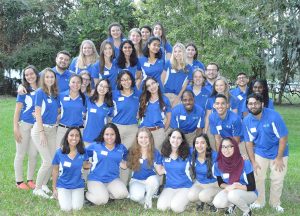
AWARE ambassadors are trained students who support outreach initiatives at the Counseling and Wellness Center. They also lead Gator-2-Gator consultations and write Letters of Care. Photo courtesy of Rosa West
Unlike counseling sessions that could require an appointment far in advance, students can attend as many weekly Gator-2-Gator consultations as they like during the semester. If a student frequents them, ambassadors can help connect them to additional support services.
For students who are in crisis but don’t realize it, the consultations can also call attention to serious concerns. But many students find the short conversations meet their needs, West said.
“It’s that space where a student may not need counseling, but they’re really just coming to consult around a current struggle or worry they’re experiencing,” she said.
Letter of Care campaign
Launched at the start of the pandemic, the Letter of Care campaign was originally designed to combat isolation. Now, it’s a permanent option for students seeking an asynchronous version of a Gator-2-Gator consultation.
Students can write to ambassadors at the Counseling and Wellness Center using their GatorLink email address for emotional support or recommendations on campus resources. Like Gator-2-Gator consultations, there’s no limit on how many letters students can write.
Ambassadors often respond within 48 hours, West said. With about 15 ambassadors scheduling time to write letters, the responses are detailed and genuine, she added.
“It’s one of those services where, you know, I might just be feeling down and want to feel support in a time of a semester that I know is particularly stressful,” West said. “I can make the time just to kind of reach out and say, ‘Hey, I’m drowning over here.’”
SilverCloud self-guided programs
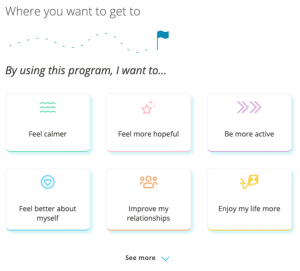
Using SilverCloud, students can decide on personal goals and learn strategies to meet them through managing their mental health. Image from www.ufl.silvercloudhealth.com
SilverCloud is an online toolkit to help people develop emotional stability and manage anxiety, depression and stress. Users take a five-question screening to identify which of the seven available SilverCloud programs can best meet their needs.
Students can improve self-esteem, awareness of moods, problem-solving abilities and ability to regulate anxious thoughts through mindfulness exercises, interactive journaling and documenting habits and emotions. Combined, the programs can take up to 10 weeks to complete.
Still not sure which one is right for you?
Visit My CWC to learn how others have added mental healthcare into their routines. Launched in summer 2021, the site is designed to inform students about no-wait services they can routinely use, West said.
“From semester to semester, we want our students to think about, ‘Well, what am I doing to take care of my mental health?’” she said.
Counseling and Wellness Center offerings are centered on talking, listening and learning. Other resources include workshops, online trainings and a weekly podcast featuring local experts covering topics such as mental health in the Black community, international student experiences, boundaries, sexuality and creativity.
Or reach out to a clinician using their “Ask it!” service with questions about resource availability, managing stress or supporting others. Students can also make personalized plans using the My CWC Plan template.
“The idea of My CWC is cultivating a sense of ‘this is my mental health healthcare center’ for students to use readily and not just in times of crisis treatment,” West said. “We want our students to not come to our site just for information, but really use it practically and intentionally as a way to take care of themselves.”
To make an appointment at the Counseling and Wellness Center, call 352-392-1575 for triage, where you can meet with a specialist to discuss your concerns and receive recommendations.
The Counseling and Wellness Center crisis line can be reached at 352-392-1585 and is staffed 24/7. Walk-in crisis stabilization is located at 401 Peabody Hall. For emergencies, call 911.
Undergraduate students can apply to become an AWARE ambassador until Sept. 10. at 11:59 p.m. Applications take roughly 30 minutes.
Learn more about the Counseling and Wellness Center.
Source: Rosa West, dansar@ufl.edu
Writer: Halle Marchese, hmarchese@ufl.edu

